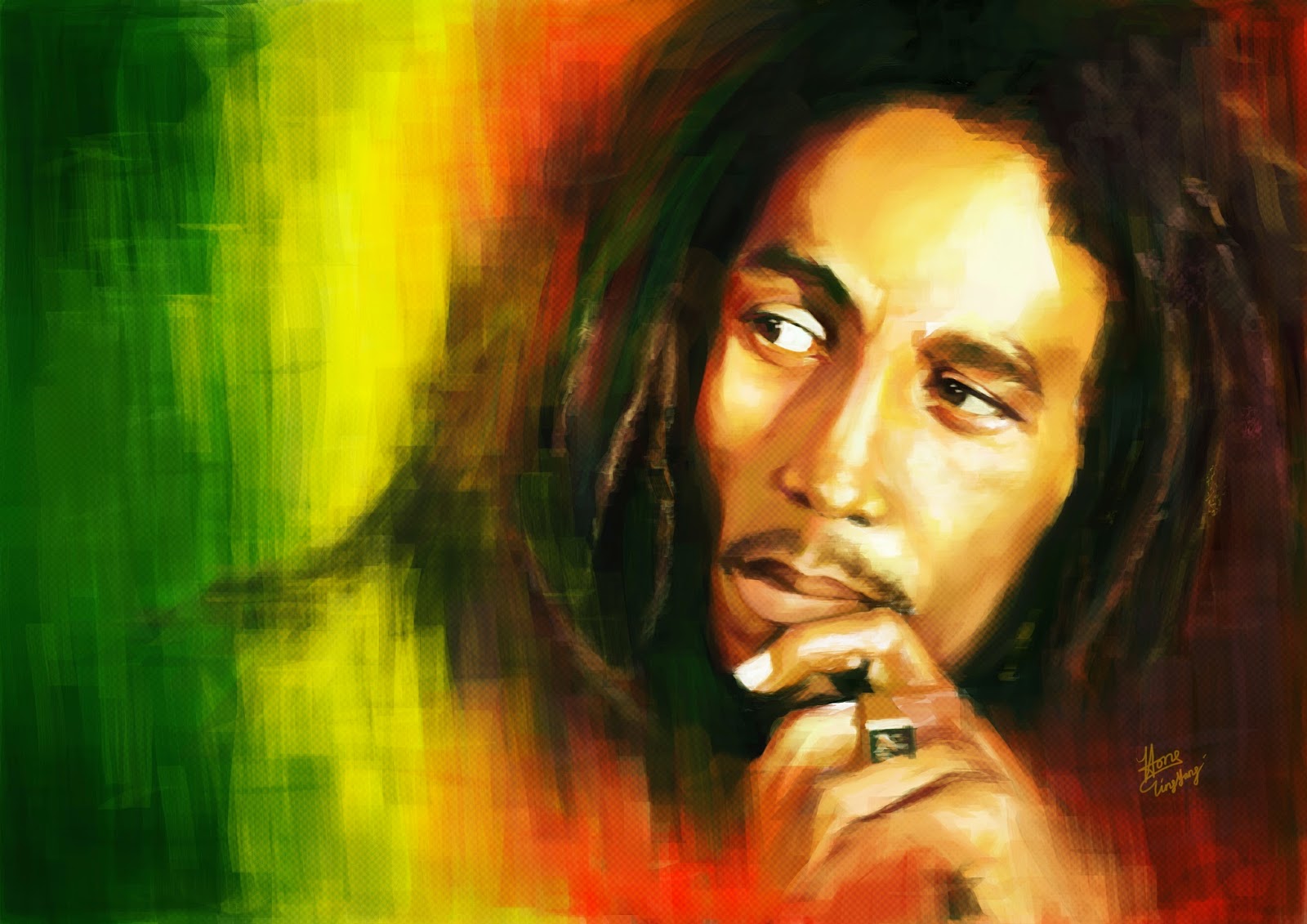Bob Marley: Influence On Society
Bob Marley, a name synonymous with reggae, has left an indelible mark on music and culture around the world. His influence transcends mere entertainment; it embodies social justice, peace, and unity. As we delve into Bob Marley's impact on society, we will explore how his music and message have shaped cultural movements and inspired generations worldwide.
In this article, we will examine Bob Marley's life, his musical journey, and the profound influence he has had on various aspects of society. From his advocacy for social change to his role in promoting Rastafarian culture, Marley's legacy is a testament to the power of music as a tool for transformation.
Join us as we explore the multifaceted influence of Bob Marley on society, highlighting key moments in his life and the enduring relevance of his work in today's world.
- Exploring The Lives Of All Jackson Siblings A Deep Dive Into The Iconic Family
- Allan Kayser A Deep Dive Into The Life And Career Of The Talented Actor
Table of Contents
- Biography of Bob Marley
- Musical Journey
- Advocacy for Social Justice
- Cultural Impact
- Promotion of Rastafarian Culture
- Global Influence
- Legacy and Continuing Influence
- Conclusion
Biography of Bob Marley
Born on February 6, 1945, in Nine Mile, Jamaica, Robert Nesta Marley, known as Bob Marley, was raised in a modest household. His father, a white British naval officer, and his mother, a black Jamaican woman, faced significant challenges in a racially divided society. This background would later inform his music and messages of unity and equality.
As a teenager, Marley moved to Kingston, where he became immersed in the local music scene. In 1963, he formed the group The Wailers, which would eventually gain international acclaim. Marley's unique blend of reggae, rocksteady, and ska would lay the foundation for a new genre that spoke to the struggles and aspirations of the oppressed.
Personal Data and Biography Table
| Data | Detail |
|---|---|
| Name | Robert Nesta Marley |
| Date of Birth | February 6, 1945 |
| Place of Birth | Nine Mile, Jamaica |
| Death | May 11, 1981 |
| Genres | Reggae, Ska, Rocksteady |
| Notable Works | “One Love,” “No Woman, No Cry,” “Redemption Song” |
Musical Journey
Bob Marley's musical journey began in the early 1960s when he and The Wailers recorded their first singles. However, it was the release of "Catch a Fire" in 1973 that marked a turning point in his career. This album, often considered one of the first reggae albums to gain international recognition, showcased Marley's unique sound and lyrical depth.
- Tyreek Hills Kids A Deep Dive Into The Life Of The Nfl Stars Family
- Exploring The Mike And Molly Cast A Comprehensive Guide
Throughout the 1970s, Marley's popularity soared with hits like "Get Up, Stand Up" and "No Woman, No Cry." His music not only entertained but also conveyed messages of hope and resistance against oppression. Marley's ability to blend infectious rhythms with powerful lyrics made him a voice for the marginalized.
Advocacy for Social Justice
Marley's influence extended beyond music; he became a prominent advocate for social justice and human rights. His song "Redemption Song" is particularly notable for its themes of freedom and empowerment. The lyrics encourage listeners to "emancipate yourselves from mental slavery," a message that resonates deeply with those fighting against systemic oppression.
In addition to his lyrical activism, Marley participated in significant political events, such as the One Love Peace Concert in 1978, which aimed to unite the politically divided Jamaica. His commitment to peace and social change earned him recognition as a cultural icon and a symbol of hope for many.
Cultural Impact
Bob Marley's cultural impact is far-reaching. He played a pivotal role in bringing reggae music to a global audience, paving the way for future artists and influencing various genres, including rock, pop, and hip-hop. His music transcends cultural and linguistic barriers, resonating with people from diverse backgrounds.
Moreover, Marley’s portrayal of Rastafarian culture helped to popularize its beliefs and practices, fostering a greater understanding and appreciation for this spiritual movement. His iconic image, characterized by dreadlocks and vibrant colors, has become a symbol of resistance and empowerment.
Promotion of Rastafarian Culture
As a prominent figure in Rastafarian culture, Marley used his platform to educate people about its principles, such as love, peace, and unity. His songs often referenced biblical themes and Rastafarian beliefs, promoting a message of harmony among all people.
Marley’s influence has led to a resurgence of interest in Rastafarian culture, inspiring many to explore its teachings and embrace its values. The celebration of his life and music continues to be a significant aspect of Rastafarian festivals and gatherings worldwide.
Global Influence
Bob Marley's influence on society is not confined to Jamaica; it is felt worldwide. His music has inspired social movements, from civil rights campaigns in the United States to anti-apartheid efforts in South Africa. Marley's message of unity and resistance continues to resonate with those fighting against injustice today.
Furthermore, his songs have been adopted as anthems for various causes, illustrating the universal appeal of his music. The enduring popularity of tracks like "One Love" serves as a reminder of the power of music to inspire change and foster a sense of community.
Legacy and Continuing Influence
Bob Marley's legacy is alive and well, with his music continuing to inspire new generations. His impact on society is evident in the continued celebration of his work through festivals, tributes, and cover songs by contemporary artists. Marley's ability to address societal issues through his music ensures that his message remains relevant.
In addition, organizations dedicated to social justice and advocacy often cite Marley as a source of inspiration, highlighting his role in promoting peace and equality. His life story serves as a powerful reminder of the transformative power of art and the importance of using one's platform for positive change.
Conclusion
In conclusion, Bob Marley's influence on society is profound and lasting. His music has served as a catalyst for social change, advocating for justice, peace, and unity. Through his artistry, Marley has inspired countless individuals and movements, making him a true cultural icon.
As we reflect on Bob Marley's life and work, let us continue to embrace the values he championed and strive towards a more just and equitable society. We invite you to share your thoughts in the comments below and explore more articles on our site that celebrate the power of music and its ability to inspire change.
Thank you for joining us on this journey through Bob Marley's influence on society. We hope you found this article informative and inspiring. Please visit us again for more engaging content!



Detail Author:
- Name : Otto Hegmann PhD
- Username : kreiger.lionel
- Email : jevon45@yahoo.com
- Birthdate : 1986-03-09
- Address : 488 Sheldon Views Suite 433 New Cristal, FL 28173
- Phone : 959.237.6821
- Company : Kiehn Inc
- Job : Biologist
- Bio : Et voluptatem quis consequatur ut aliquid inventore omnis. Quis laborum eveniet rem labore nisi quasi. Illo id deserunt delectus sint. Quidem dignissimos harum vitae qui quas neque.
Socials
twitter:
- url : https://twitter.com/johnsonc
- username : johnsonc
- bio : Delectus consectetur doloribus nihil nostrum nihil. Voluptatum enim cum et eos veniam molestias et. Saepe eveniet perspiciatis et quis sed.
- followers : 6167
- following : 2118
facebook:
- url : https://facebook.com/johnson1992
- username : johnson1992
- bio : Eius fugiat dolorum voluptas eaque quos.
- followers : 714
- following : 2962